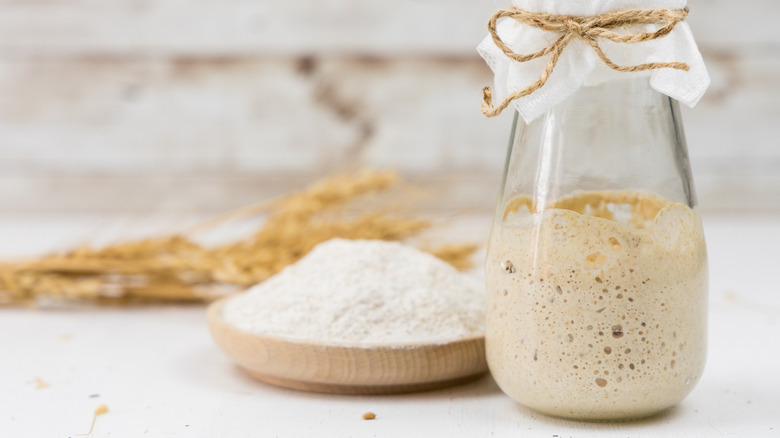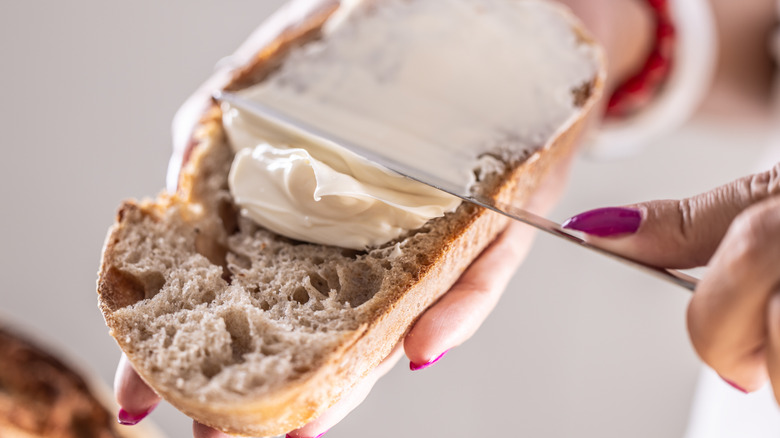Eating Sourdough Bread Every Day Has An Unexpected Effect On Your Body's Nutrient Absorption
Do you still have some of that sourdough starter left over from the pandemic? You might want to get back to that breadmaking habit again, even if you decided to quit carbs. The fermentation process used to make sourdough bread makes it easier to digest and reduces its glycemic index.
Sourdough also helps you add more nutrients to your diet, but not in the way you might think. Gram for gram, sourdough might not have more vitamins and minerals compared to whole wheat bread, but sourdough bread helps to make nutrients more available for your body to use.
Many plant-based foods are rich in minerals such as magnesium, potassium, and zinc, but they also have an anti-nutrient called phytic acid. Phytic acid binds to these important nutrients and prevents them from being absorbed by your body. Sourdough's fermentation process reduces the phytic acid to allow your body to absorb these essential minerals.
How sourdough lowers phytic acid to help mineral absorption
Phytic acid isn't a harmful substance, especially for plants. Phytic acid is found in the seeds of a plant, and the plant's enzymes break down phytic acid into phosphorus so the plant can grow. However, your body doesn't have these plant enzymes to break down phytic acid, so it passes through your digestive system, taking important minerals with it. This could lead to mineral deficiencies if you eat a lot of nuts, seeds, or legumes with your meals. It could be particularly problematic if your diet is already low in minerals.
Sourdough's fermentation activates the enzymes in the grains to break down the phytic acid. The beneficial bacteria found in the sourdough starter also help to reduce the phytic acid. Different strains of sourdough microbiota combined with the wild yeast can reduce the phytic acid by as much as 40%, according to a 2024 review in Foods. The phytic acid content in sourdough can vary depending on factors like how long the starter is fermented and what other enzymes and probiotics are added to the dough.
Other benefits of sourdough bread
Aside from improving mineral absorption, sourdough bread has other health benefits you might not find in other types of bread. A 2022 review in Advances in Nutrition looked at 25 clinical studies that focused on the health outcomes of sourdough bread. Some studies showed that in healthy people, sourdough made from whole grain or rye flour reduced the blood sugar spike compared to white wheat bread made from traditional yeast. The lower glycemic effect might not have the same impact on people with obesity.
(Read what happens to your body when you eat sourdough bread every day.)
Sourdough bread has also been studied for its ability to reduce gastrointestinal issues, but no real differences exist between sourdough and traditional bread when tested in healthy people. People with irritable bowel syndrome (IBS) might be a little more friendly to the digestive system, depending on how the sourdough is made. Some studies show that low-FODMAP or low-gluten sourdough could reduce IBS symptoms. Sourdough might not do much for your cardiovascular health, but one study found that sourdough reduced LDL cholesterol by slightly more than bread made from traditional yeast.


